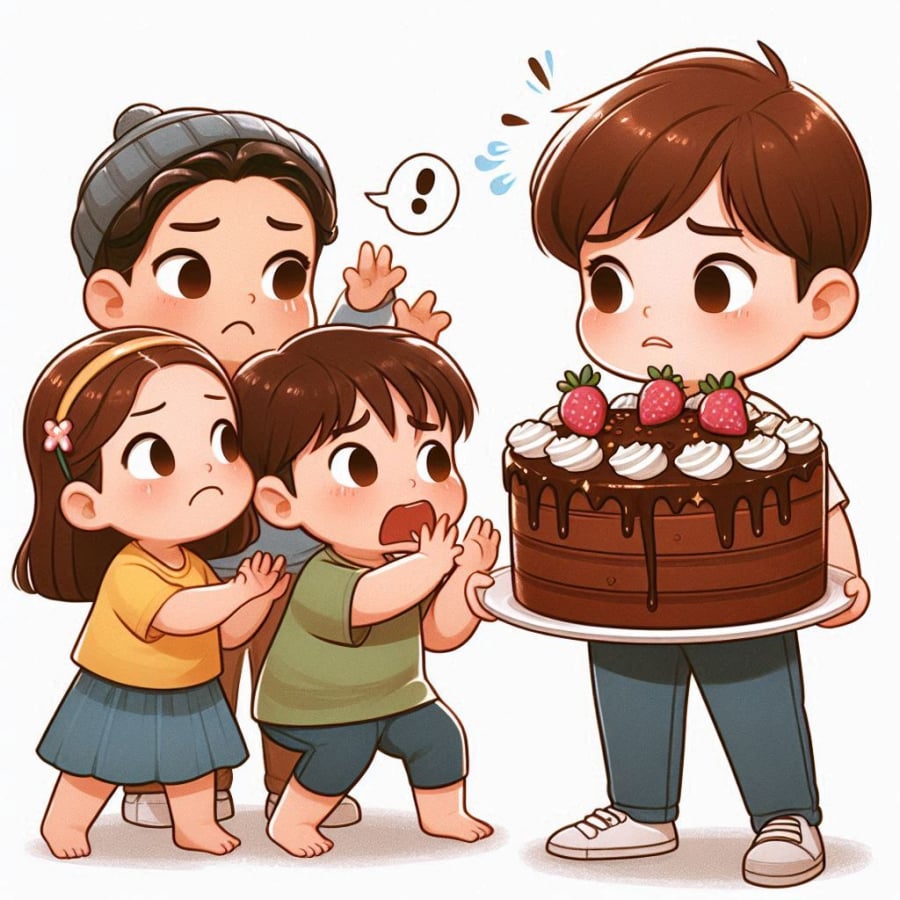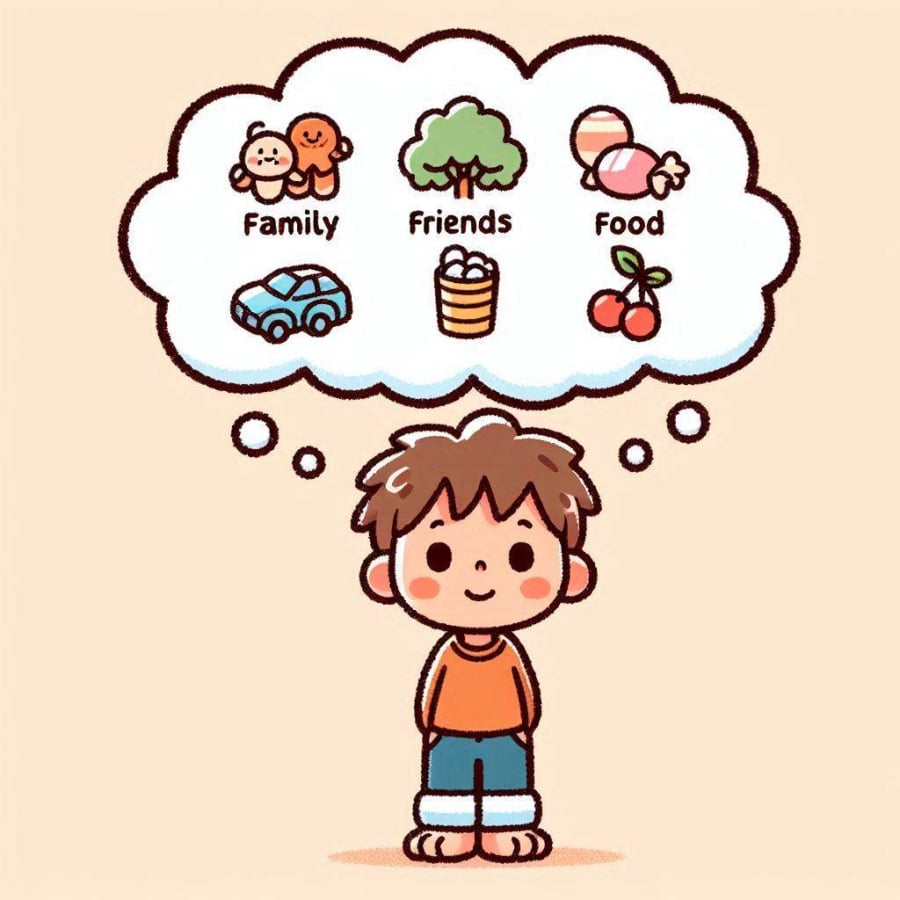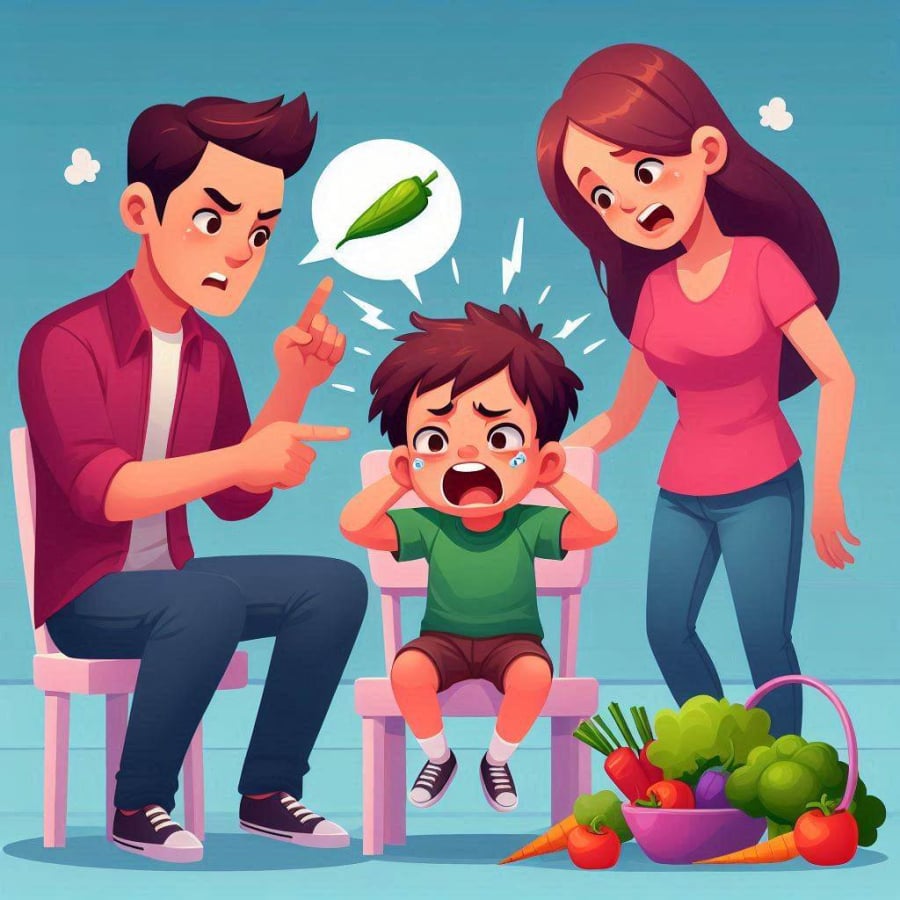For many parents, children are not just a continuation of life but also a symbol of hope for the future. Parents shower their children with love and care and expect respect and consideration in return during their golden years.
However, if children develop the following habits, they are less likely to exhibit filial piety. Parents should pay attention to adjusting these behaviors to help children understand the values of morality, love, and bonding within the family.
Selfishness and a Self-Centered Attitude
Some children are overly indulged from a young age, leading to the development of selfish personalities. They focus solely on themselves without considering the feelings and needs of those around them.
These children often worry about whether their needs will be met and take their parents’ care for granted. As they grow up, they may fail to realize that their parents’ love and support are precious gifts, instead becoming indifferent to their parents’ sacrifices.
When their parents reach old age and require care, these children tend to shy away from their responsibilities, worried that providing care will affect their own lives.
For example, during the process of dividing family assets, they may strive to get a larger share for themselves, disregarding their parents’ emotions and needs. This behavior reflects a deep-rooted issue with morals and responsibility.
Therefore, it’s crucial to educate children early on about the value of care and love within the family. Parents can achieve this through simple activities such as doing household chores together, sharing pet care responsibilities, or engaging in volunteer work. These experiences will teach children that caring for and supporting each other is essential in family relationships.

Overindulged children may develop selfish tendencies.
Lack of Gratitude in Children
Gratitude is a valuable virtue that plays a vital role in fostering filial piety. However, many children tend to overlook their parents’ sacrifices and love. These children often feel that they don’t need to reciprocate what they’ve received.
As they grow up, children enjoy a comfortable life provided by their hardworking parents. Yet, they rarely express gratitude or appreciation for their parents’ efforts.
For instance, when parents work tirelessly to provide the best living conditions for their family, these children may not value and appreciate their parents’ hard work, even squandering money on personal interests without considering their parents’ sacrifices.
Although parents dedicate much time and energy to caring for their children when they are sick, these children often fail to reciprocate when their parents face health issues, displaying indifference and a lack of concern.
The consequences of ingratitude extend beyond family relationships, impacting other social connections as well. Children may struggle to empathize and share with others, leading to difficulties in forging friendships and professional relationships.
Therefore, encouraging children to express gratitude for what they receive is of utmost importance. When children learn to value the efforts and love of others, they develop into responsible individuals, laying the foundation for positive relationships in the future.

Encouraging children to express gratitude is essential.
Lack of Respect for Parents
Respect is one of the most important manifestations of filial piety in the family. However, some children fail to exhibit this, often losing their temper, arguing, or even using offensive language towards their parents. They tend to ignore their parents’ opinions and suggestions, causing hurt and weakening the family bond.
For example, in daily communication, children may display negative attitudes, use rigid tones, and frequently interrupt their parents. When parents make reasonable requests, such as regarding academics or family chores, these children tend to oppose, reject, and refuse to listen.
Children’s lack of respect can stem from various factors, including parenting methods and environmental influences. They may adopt this attitude from peer relationships or by witnessing disrespectful behaviors through various media outlets.
To address this issue, parents should establish clear rules for behavior within the family. Most importantly, teach children to understand that respect is a core value in all relationships. Parents should also lead by example by showing mutual respect, even when they disagree.

Respect is a cornerstone of filial piety.
Apathetic Attitude
Some children display an apathetic attitude towards their parents, lacking a sense of family bonding. They tend to communicate less and show little interest in their parents’ health or mental state. When their parents face difficulties, these children rarely take the initiative to help, considering it unrelated to them.
For instance, if their parents fall ill and are hospitalized, these children rarely visit or even call to inquire about their well-being. Such behavior can cause sadness and a sense of helplessness for parents in their golden years.
To deal with children exhibiting these habits, parents should understand that they cannot solely rely on their children. Fostering filial piety and care from children is not easy; hence, parents should sometimes take the initiative to care for themselves. For a stable and happy life in their later years, parents should start imparting humane values and care to their children from an early age.
Parents should create a plan for their family’s future, which includes setting clear rules and boundaries regarding the responsibilities of each family member. Additionally, parents should also prepare alternative support systems to ensure they can take care of themselves if their children fail to meet their expectations.
By doing so, parents can find peace of mind and stability in their later years. When parents live happily and healthily, they become positive role models, inspiring gratitude and respect from their children, ultimately building a closer and warmer family.
Why Are Pink Roses the Official Flower of the Vu Lan Festival?
The donning of a rose during the Vu Lan festival is a symbolic gesture of gratitude and remembrance towards one’s parents, grandparents, and ancestors. It is a time-honored tradition where the rose serves as a physical emblem of love and respect, worn close to the heart as a reminder of the bond between generations.
The 3 Unforgivable Sins: Ingratitude, Debauchery, and What Else?
“Ancient wisdom reminds us that the heavens watch over us, with the saying, “There are Gods and Spirits watching over us from above three meters.” Every action, every choice we make, is observed by the divine. So, if you believe that “as you do, so shall you reap,” then beware of these three heinous acts that will invite heavy karmic retribution.”
The Joys of Parenthood: 50+ Heartwarming and Insightful Quotes About Children
Children are a parent’s most precious asset, cherished and loved beyond measure. Capturing the essence of this bond, we explore a collection of heartfelt and profound quotes about children. These words will resonate with parents, offering a beautiful reminder of the joy and wonder that children bring into our lives.





































